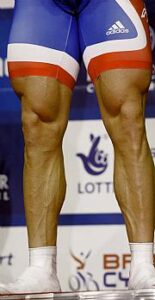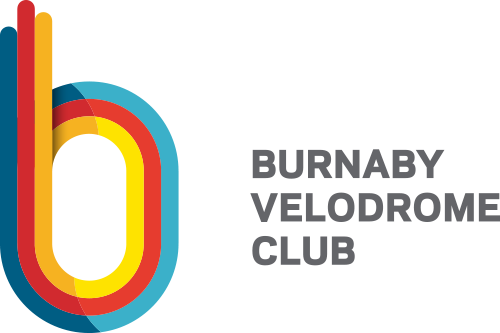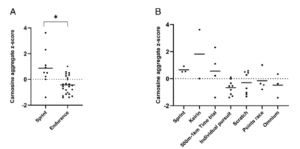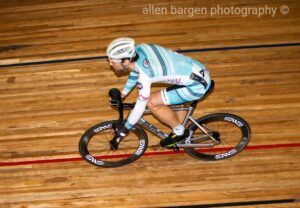#Tracklife – Cyclists’ leg muscles may tell us more than we think!
Different traits allow cyclists to excel in specific cycling disciplines. For example, BMX riders and track sprinters have greater muscle mass allowing them to produce short but extremely high-power outputs. Climbers, track pursuitists, or XC MTBers, however, may have muscles that are “smaller” but with a high efficiency and ability to uptake oxygen.
Perhaps you’ve heard of slow and fast-twitch fibers and, yes, you guessed it; sprinters have greater fast-twitch fibers and endurance riders have greater slow. The gold standard in determining fiber type is via muscle biopsy. Picture a relatively large needle inserted into the muscle a taking out a small piece of muscle for analysis under the microscope. As you can imagine, convincing professional athletes to undergo this procedure can prove difficult.
 Photo source unknown – Sir Chris Hoy
Photo source unknown – Sir Chris Hoy
In the present study, researchers from Belgium and Australia sought to determine the proportion of fast and slow-twitch fibers across various cycling disciplines. Instead of using needle biopsy, they measured carnosine content in the calf muscle via proton magnetic resonance spectroscopy (a sophisticated medical imaging system). To directly quote “Carnosine is a muscle pH buffer that has a twofold higher concentration in fast-twitch fibers compared with slow-twitch fibers and is associated with the muscle biopsy determined area of fast-twitch fibers”, in other words, high levels of carnosine are found in fast-twitch fibers. So, if high levels of carnosine are seen via scan it means that the muscle has a higher percentage of fast-twitch.
These researchers used this approach to scan the cream of the crop. A total of 80 world cup/world tour cyclists (57 male, 23 female) participated. Disciplines included BMX, Track, Cyclo-Cross, Road, and MTB. Results showed the highest level of carnosine in BMX riders followed by track cyclists. Fun for us, the researchers further examined levels of carnosine within track disciplines, finding those participating in sprint events (sprint, keirin) had higher levels than those in endurance events. Of interest, within track endurance, those specializing in the points race had greater carnosine levels than IP, scratch race, or omnium, not surprising given the multiple sprints within the points race.
The take-home message is that various muscle typologies are present across and within cycling disciplines. In addition, these findings could help with talent identification.
How can you apply these findings: Although you may not have access to this technology, have a sit and think do I do better in sprint finishes, am I super explosive, or can I ride for long periods without fatigue? Tailoring your track program (yes, the BVC has both sprinting and endurance training) to your strengths could mean more fun and maybe more time on the podium!
Test yourself out on a variety of Strava segments (of course in a safe manner). See of do you do better in the leaderboard for short punchy/sprint segments or long climbs? If you are better at the short efforts compared to their longer efforts then maybe focus on short power and you may find yourself being successful in – Track, BMX, DH, Crits. and if you are better at longer then consider RR, Tri, ITT.
But remember if you never trained for sprinting don’t expect to be a world champion in a day.
Strength of the research: World-class level cyclist. Validated technology.
Weaknesses of the research: Two different scanners were used. Not muscle biopsy (but good luck doing that)
Reference
Lievens E, Bellinger P, Van Vossel K, Vancompernolle J, Bex T, Minahan C, Derave W. Muscle Typology of World-Class Cyclists across Various Disciplines and Events. Med Sci Sports Exerc. 2021 Apr 1;53(4):816-824.
Normand Richard, MSc, CSEP-CEP, ACSM-CET.
Richard Physiological Services
Physiologist & Occupational Fitness Consultant
Normand has been involved in physiology for more than 10 years. He has research, clinical, occupational, and performance experience, and a professional consulting firm (richardphysiology.com) Outside of work he enjoys track racing for its community, simplicity, and challenge.












